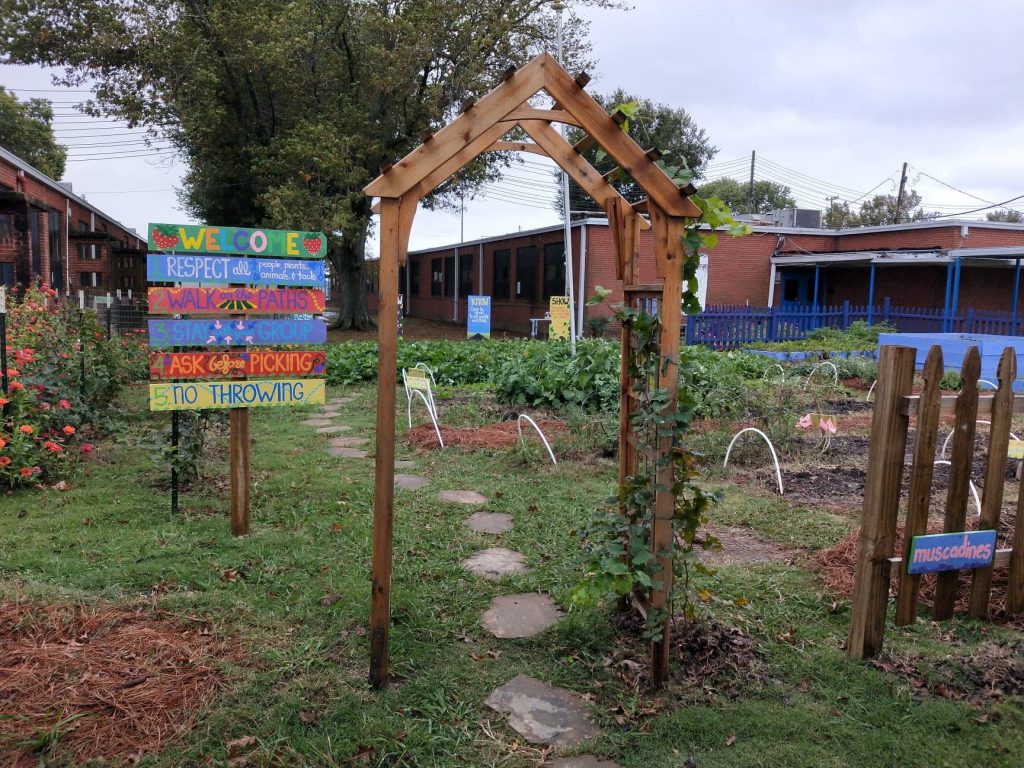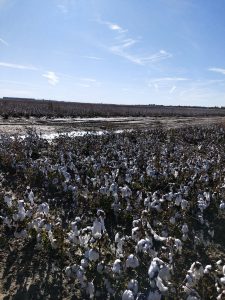
I’ve never been to the south before but coming to Mound Bayou has felt like coming home. In a literal sense, I’ve been blessed to have been invited into the heart of the community — Mayor Eulah Peterson and several community members hosted a welcome dinner the night we arrived, Reverend Charles Young and his wife brought us into their family home to talk about education and faith, Mr. John Coleman drove us through land his family has owned and farmed for decades. Mound Bayou is a community where everyone knows everyone, where the neighbors you grew up with became your classmates, colleagues, and family.
One of the most interesting things that has resonated with me on this trip so far has been the town’s emphasis on self-ownership, whether that be prioritizing education or owning your own land and growing your own crops or starting your own healthcare centers, businesses, and churches. A lot of that stems from the town’s history — Mound Bayou was founded by two freed slaves during the Jim Crow era. The town was created by African Americans, for African Americans. By creating a space where people who were historically marginalized were prioritized, the founders created an unshakable sense of pride.
I’ve spent the past few days looking specifically at what land means to people in Mound Bayou. Mississippi — specifically the Delta region — is known for its fertile soil, but the state has been ranked the most food insecure state for eight years in a row, according to Feeding America. How does a state with so many acres of farmland simultaneously suffer from high rates of poverty, malnutrition, and obesity? One answer, given by a FoodCorps fellow with the Delta Health Alliance: The Delta is surrounded by agriculture, but none of it is edible. And that fact is evident driving along the 10-mile stretch from Cleveland to Mound Bayou every day, where all we see are miles and miles of wheat, soybeans, and cotton.

Trying to piece together the story about food in the Delta has been frustrating at times, mainly because the topic is so pervasive. I’ve spent my days talking to cafeteria workers at an elementary school, an agriculture educator at a high school, physicians at a health center, instructors at a university demonstration farm, farmers in the region, and community members and activists working to promote healthy living. Things didn’t click into place until Friday, when I sat down with Ms. Judy Belue, the executive director of an initiative working to create sustainable, equitable food systems in Mound Bayou, Shelby, and Winstonville. Agriculture has been the lifeblood of the region since it was first settled, even as towns and younger generation try to move away from it. Selling land to larger commercial farmer has led to a disconnect with those roots of self-sufficiency and loss of sight of the importance of healthy eating habits.
But nearly everyone I’ve spoken to so far is hopeful about educational programs that have cropped up to reteach kids and adults those values. Elementary schools have started planting gardens and community centers have started running cooking classes. These efforts are community-driven — the main initiatives in the region are identifying and empowering local representatives to take charge of their own food production and consumption, tapping into Mound Bayou’s original emphasis on self-ownership. At the end of the day, the answer to revitalizing agriculture in Mound Bayou may very well depend on what it has since its inception: its community.
